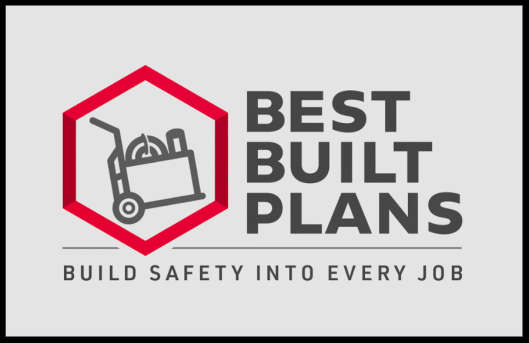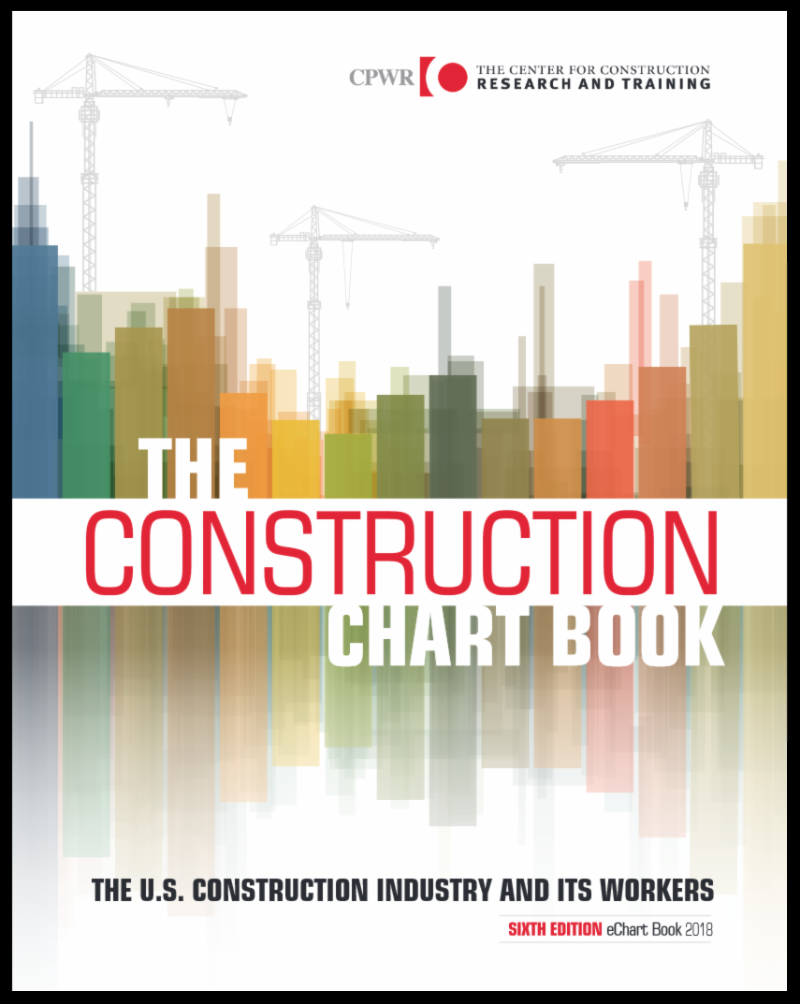|
CPWR UPDATE
|
August 2018
| |
From the Desk of Chris Trahan Cain, Executive Director
|
|
|
 |
New BEST BUILT PLANS Program Can Help Reduce Strains and Sprains on the Jobsite
 Manually lifting and moving heavy materials on job sites can result in strain, sprain, and related soft tissue injuries. These types of injuries are a leading cause of disabling injuries in the construction industry. Working with a community of practice that included researchers, insurers and industry stakeholders, CPWR's Research to Practice (r2p) and Training staff surveyed and interviewed contractors to understand the motivators and barriers to engaging in materials handling practices that would minimize the risks for these types of injuries. Based on their responses, CPWR developed a program, Best Built Plans, to provide contractors and workers with practical tools and information to plan for safe materials handling while staying productive and profitable. Best Built Plans includes resources for everyone involved in materials handling - from the new worker entering the industry to the contractor. A Site Planning Tool helps contractors integrate safer materials handling into every part of the business plan over the life cycle of a project. Interactive training and coaching resources reinforce the value of following safe practices. The tool includes a Hazard Alert card and a Toolbox Talk linked to two "Lift Coach" phone games that reinforce safe material handling. The Hazard Alert, Toolbox Talk, and related games are available in English and Spanish. All of these materials are free and easy to access and use. Visit Best Built Plans to access the Planning Tool, Training, and Coaching resources. The Lift Coach game apps can be found HERE. To view our recent webinar explaining Best Built Plans, CLICK HERE.
|
|
TOOLS FOR SAFETY AND HEALTH
Hazard Alert: Opioid Deaths in Construction
 More than 42,000 Americans died from opioid overdoses in 2016. An analysis of fatal opioid overdoses in Ohio showed that construction workers were seven times more likely than other workers to die this way. This is shocking and sad, and there are steps we, in the occupational safety and health community, can take. While we agree workplace injuries should be prevented with programs like our new Best Built Plans, construction workers continue get hurt on the job and these injuries cause pain. Doctors routinely prescribe opioids for pain. The CDC reports that as many one out of four patients prescribed opioids for long-term pain becomes addicted. We must educate everyone in our industry on the risks of taking prescription opioids for pain.
|
RESEARCH NEWS
The Construction Chart Book, 6th Edition
 The Construction Chart Book - The U.S. Construction Industry and Its Workers presents the most complete data available on all facets of the U.S. construction industry: economic, demographic, employment/income, education/training, and safety and health issues, plus much more - all in one place. This new edition not only offers on-demand access to the charts and data, but also includes interactive features that enhance the user's experience. Visit the CPWR website to consult the contents online or to download this essential reference volume to your PC or laptop.
|
Thursday, August 23 @ 2pm ET (30 min). WAIT, WHAT? Construction Safety Materials that Everyone Can Understand. Are your construction safety and health handouts and training materials getting the point across to your readers? CPWR has used lessons from health communications experts to review more than 100 handouts, brochures and pamphlets used in construction safety and health training around the country to identify good and bad practices - and tested these with hundreds of construction apprentices and journeymen. Join us for this webinar to hear the results of the study, then learn tips you can use to select the right materials for YOUR audience - or to prepare your own. CLICK TO REGISTER
|
Reducing Highway Construction Fatalities Through Improved Adoption of Safety Technologies. Chinweike Eseonu, John Gambatese, and Chukwuma Nnaji, 2018. CPWR Report
|
New 'Chart Book' offers detailed, expansive view of U.S. construction industry. Equipment World
|
|
|
|